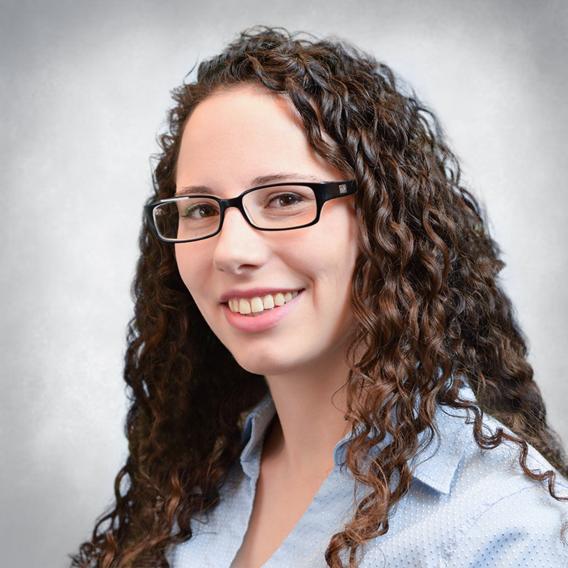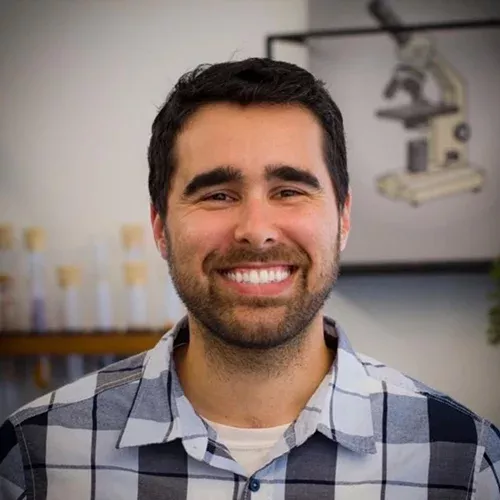Signals Research Suite Connect
Previous Webinars
Accelerating Insights: Efficient Data Querying and SAR Analysis with Signals Research Suite
Discover how the Signals Research Suite can streamline your data querying and analysis processes for more impactful structure activity relationship (SAR) analyses. This webinar will highlight the new search and summary tool, including how it can supplement existing decision-making visualizations. While centered on small molecule drug discovery, the insights shared will be valuable for diverse fields and industries.
Signals Research Suite Speakers

Samantha Jeschonek, Ph.D.
Product Manager Signals Research Suite, Revvity
Is the product manager for Data-driven Analytics in Signals Research Suite, Lead Discovery Premium, and Lead Discovery. She holds a Ph.D. in Molecular Biology, Cell Biology, and Biochemistry. She has spent the last several years as a product manager for drug discovery informatics software. In addition to more than a decade of bench experience in molecular biology, she brings a passion for FAIR data / metadata to the Revvity Signals product team.
1. Transforming in vivo research with Signals Research Suite
Sunetra Ray, Ph.D. - In vivo Lead Product Manager
Traditionally, preclinical in vivo studies have relied on manual methods like spreadsheets, emails, and isolated tools, resulting in fragmented data management. Furthermore, the intricate workflows and the need for skilled personnel to collect and interpret data have continued to hinder automation efforts. The in vivo capability in Signals Research Suite transforms these processes by enabling seamless end-to-end study workflows. By integrating with Electronic Lab Notebooks (ELN) and advanced data analysis tools, this digital platform overcomes the constraints of traditional approaches, streamlining research procedures and significantly improving the precision and efficiency of in vivo studies.
2. Successfully analyzing screening assays capturing single to multiple and high-dimensional readouts
Eduardo Gonzalez-Couto, Ph.D. - In vitro Lead Product Manager
Modern screening assays take advantage of the recent advances in instrumentation allowing to capture multiple readouts simultaneously. Together, these readouts can better capture the complexity of the underlying biology like in the context of flow cytometry, gene expression or even from images with high content screening. However, harnessing the benefits of these instrumentation advances requires advanced analysis and visualization software. Signals Research Suite covers all the dimensions of innovative screening approaches at scale to interpret better and faster your assay results.
3. Unlocking Hidden Gems: Why Public Datasets are a Treasure Trove
Alexandra Vamvakidou, Ph.D. - Field Application Scientist, Leanna Shuster, M.A., Field Application Scientist
In today’s data-driven world, organizations increasingly rely on data analytics to gain a competitive edge. Generating data is time-consuming and costly, therefore leveraging publicly available datasets to correlate with internal data allows scientific groups to increase their efficiency and improve their overall data scope. Researchers acknowledge the benefits of connecting multiple data sources to improve the precision of their findings and shape future research directions, challenging existing perceptions of scientific knowledge. This presentation will explore the art of extracting meaningful insights from complex scientific data, including how to use Signals to reach meaningful conclusions by leveraging large, publicly available datasets, with examples from PubChem. We will use Spotfire and the built-in chemical intelligence of Signals Research Suite to explore such data.
What you will learn:
- The importance and benefits of leveraging publicly available datasets in scientific research and how to extract meaningful insights from complex scientific data using Signals Research Suite
- How Signals Research Suite facilitates analysis and visualization of in vitro screening techniques employing multi-and high-dimensional data acquisition for better and faster assay interpretation.
- The benefits of Signals Research Suite and its advanced data analysis capabilities to streamline in vivo research procedures and improve the precision and efficiency of in vivo studies.
Signals Research Suite Speakers

Sunetra Ray, P.h.D.
In vivo Lead Product Manager
Sunetra Ray is Lead Product Manager for in vivo informatics solutions at Revvity Signals. She has a PhD in Molecular Pharmacology from UCLA, with 4+ years of industry experience in preclinical PK/PD studies, drug discovery and translational research. Sunetra's has broad experience in both in vitro and in vivo with extensive experience conducting in vivo studies in animal models of cancer, infectious diseases, and inflammation.

Eduardo Gonzalez-Couto, Ph.D
In vitro Lead Product Manager
Dr. Gonzalez-Couto is currently responsible for the core screening capabilities of Signals VitroVivo and formerly was product manager for translational medicine, bioinformatics products strategist & manager at R. Previously, he was CSO at Integromics and has more than 25 years of professional experience in bioinformatics gained at GlaxoWellcome, GeneProt, and Siena Biotech. He received his Ph.D. in Molecular Genetics after obtaining a Master in Molecular Biology and graduating in Biochemistry at the University of Geneva, Switzerland.

Alexandra Vamvakidou, Ph.D
Field Application Scientist
Alexandra holds a Master’s degree in Electrical and Computer Engineering from The National Technical University of Athens, Greece, and earned a Ph.D. in Biomedical Engineering from Drexel University. As a R Principal Field application scientist, she works closely with researchers to identify their challenges and propose solutions.

Leanna Shuster, M.A.
Field Application Scientist
Leanna Shuster graduated from Scripps College in Claremont, CA with a Bachelors degree in Chemistry and received a Masters of Science in Organic Chemistry from UCLA. She moved to the Philadelphia area in 2006 where she began work with GlaxoSmithKline as a medicinal chemist. During her 15 years at GSK, Leanna’s drug discovery areas of focus included High Throughput Chemistry, Green Chemistry, and Oncology therapeutics, while also building skills in analytics, data science, and informatics. She joined Revvity Signals as a Field Applications Scientist in 2022, where she supports a range of scientific software solutions.
Enhancing Collaboration between
Sponsors and Contract Partners in Drug Discovery
Most contemporary drug discovery companies (Sponsors) outsource some (or all) drug development to external contract partners, e.g., Contract Research Organizations (CROs) and/or Contract Development and Manufacturing Organizations (CDMOs). Communication between Sponsor and Contract organization is largely done via e-mail and poorly structured Excel reports which is a highly manual, inefficient, and error prone process. Additionally, Sponsors of contracted work struggle with a common set of problems and challenges including:
- Prioritizing and communicating the work to the CRO
- Onboarding and offboarding CRO resources
- Tracking the work at the CRO
- Masking proprietary information from the CRO to preserve the sponsors intellectual property
- Integrating the data from the CRO into the corporate data management systems
Historically each sponsor has been isolated to solve these problems on their own, costing time and money, but today we announce a new capability being delivered in 2024 by Revvity Signals that adds fit-for-purpose CRO collaboration capabilities to Signals Notebook and Signals Research Suite. This cutting-edge new product will leverage the Signals Platform and solve the common problems plaguing the standard sponsor-CRO interactions.
What you will learn:
- Gain insights into the administration, collaboration, IP protection, and project management challenges facing Biopharmaceutical sponsors when they externalize drug discovery research.
- Learn how Signals Synergy, a new solution from Revvity Signals, redefines collaboration between biopharmaceutical sponsors and contract partners.
- Get a glimpse of the key capabilities inside Signals Synergy.
Signals Research Suite Speakers

Heather Hayes
Signals Synergy Product Leader, Revvity Signals
Heather Hayes received her Bachelor of Engineering from Vanderbilt University, where she graduated Valedictorian from the School of Engineering. After completing her PhD in Biomedical Engineering at Georgia Institute of Technology focused on neuropharmacology and sensory modulation, she led translational studies and clinical trials for neuroplasticity-promoting therapeutics for spinal cord injury. Since joining the biotech industry, Heather has over 7 years of experience in the development and product management of high throughput screening instrumentation and stem cell disease modeling. Heather joined Revvity in 2022 to lead our initiative to enable and accelerate Sponsor-CRO collaboration workflows in the Signals Platform. She now serves as Product Leader for Signals Synergy

Chris Stumpf
Marketing Programming Manager
Chris Stumpf is a Senior Principal Marketing Professional responsible for Marketing Programs at Revvity Signals. Chris has over 20 years of experience in the Analytical Instrumentation and Informatics industry spanning Pharmaceuticals & Life Sciences to Chemicals & Materials. He has a Ph.D. in Analytical Chemistry and Mass Spectrometry from Purdue University.
Harnessing the Power of Antibody Drug Conjugates:
How the Signals™ Research Suite Advances Multi-Modal Drug Development
The Signals™ Research Suite is the first integrated informatics platform purpose-built to accelerate multi-modal drug development like ADCs and is composed of a trio of scientific software applications:
- Signals™ Notebook: The premier cloud-based electronic lab notebook that facilitates creation and communication about molecules of interest via hierarchical editing language for macromolecules (HELM), powered Chemdraw®.
- Signals™ VitroVivo: For data analysis, visualization, and curve fitting bioassay results for standardized and consistent results, powered by Spotfire®.
- Signals™ Inventa: Enabling multi-assay or multi-study comparison, powered by Spotfire, with the ability to find the best candidate to move forward, accelerating decision making. Researchers gain better visibility into ADC candidate profiling and can quickly determine structure-activity and structure-property relationships across modalities to select optimal conjugation sites and pairings.
Attendees will gain insights into the latest trends and challenges in ADC development, informed by recent research and advancements in the field. The presentation will also emphasize the importance of integrating various data types and sources in the ADC development process, showcasing how the Signals Research Suite facilitates this integration, thereby driving more efficient, safer drug development.
Signals Research Suite Speakers

Zev Wisotsky
Sr. Principal Marketing Manager for Biologics in the Signals Research Suite
Zev attended the University of California, Santa Cruz with a focus on molecular and cellular biology. He obtained his Ph.D. at the University of California, Riverside for Neuroscience where he worked on taste detection from molecular mechanism to behavioral outcomes in fruit flies. Subsequently Zev joined startup companies with the focus to support scientists getting their science done more efficiently. He has worked within pre-sales teams to discover, consult, and deliver software solutions that meet customer needs both scientifically and technically. Today he is a Revvity Senior Principle Marketing Manager for Biologics in the Signals Suite.
